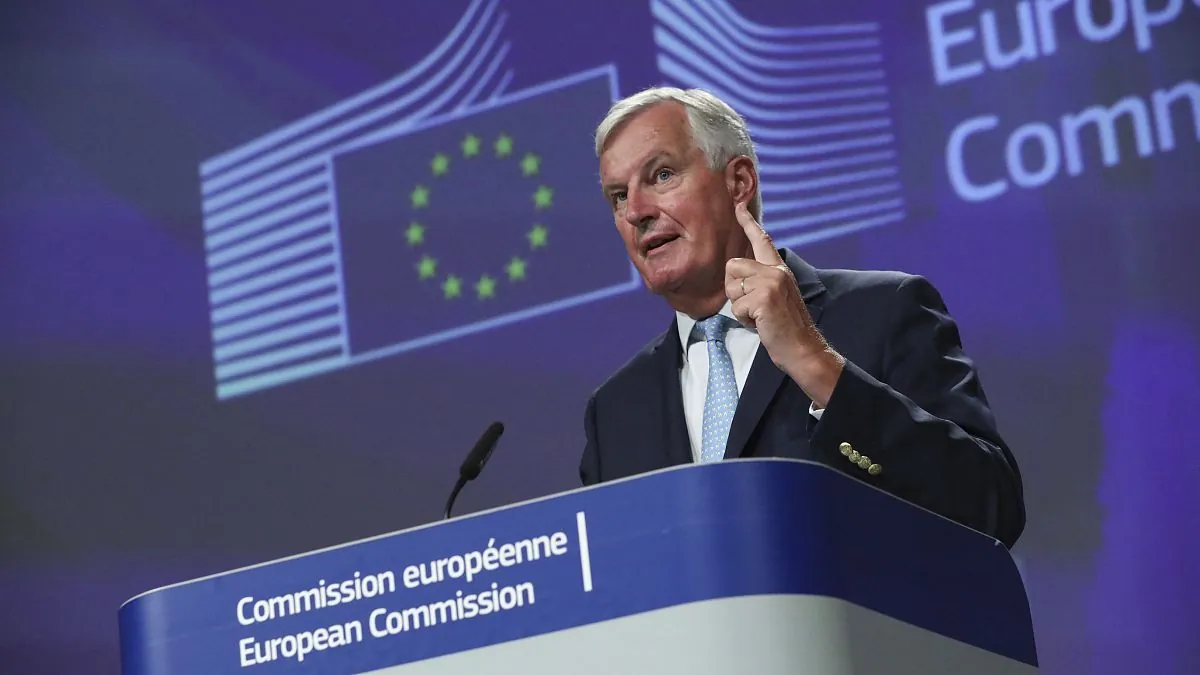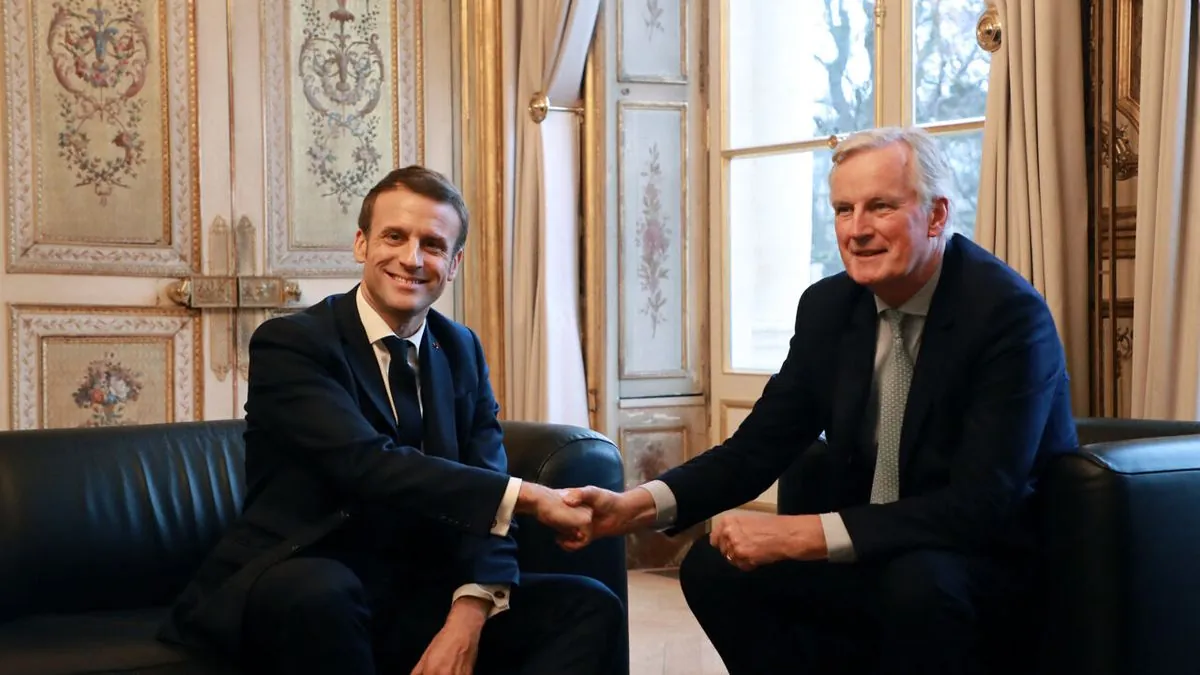Macron Appoints Ex-Brexit Negotiator Barnier as French Prime Minister
French President Macron named Michel Barnier as prime minister, aiming to end political deadlock. The former EU Brexit negotiator faces challenges in forming a unifying government amid opposition threats.

French President Emmanuel Macron has appointed Michel Barnier as the new prime minister of France, marking a significant development in the country's political landscape. This decision comes approximately two months after legislative elections that resulted in an unprecedented political impasse.
The Élysée Palace, the official residence of the French president, announced that Macron has entrusted Barnier with the task of establishing a government that can unite the nation and serve the French people. Barnier, who previously served as the European Union's chief Brexit negotiator, brings a wealth of experience to the role, having held various positions in past French administrations, including Minister of Foreign Affairs and Minister of the Environment.

Barnier's appointment comes at a crucial time for France, as the country grapples with political fragmentation following the recent legislative elections. These elections, held in early July 2024, saw Macron's party lose its governing majority in the 577-seat National Assembly, the lower house of the French Parliament.
The selection of Barnier as prime minister is seen as a strategic move by Macron to navigate the complex political landscape. The French Fifth Republic, established in 1958 under Charles de Gaulle, operates under a semi-presidential system where the prime minister must effectively gain approval from the National Assembly.
"After an unprecedented cycle of consultations, President Macron believes that Michel Barnier has the best chance of achieving political stability and garnering the broadest possible support."
This appointment could potentially end weeks of uncertainty during which Macron's ministers remained in office as a caretaker government with limited authority. However, challenges lie ahead as the new administration faces an October deadline to present a new budget, just one month from now.
The political landscape remains fraught with tension, as both the left-wing New Popular Front alliance and the right-wing National Rally have threatened to initiate no-confidence votes against candidates they oppose. This situation underscores the delicate balance Barnier must strike in forming a government that can secure broad support.
It's worth noting that Barnier, a member of the center-right Les Républicains party, previously sought to challenge Macron in the 2022 presidential election but failed to secure his party's nomination. Macron, who became the youngest president in French history when elected in 2017 at age 39, now looks to Barnier's experience to navigate the current political challenges.
As Barnier prepares to take residence at the Hôtel Matignon, the official home of the French prime minister, he faces the formidable task of uniting a divided political landscape and addressing the pressing issues facing the nation. The coming weeks will be crucial in determining whether this appointment can indeed bring the stability and unity that France currently seeks.


































